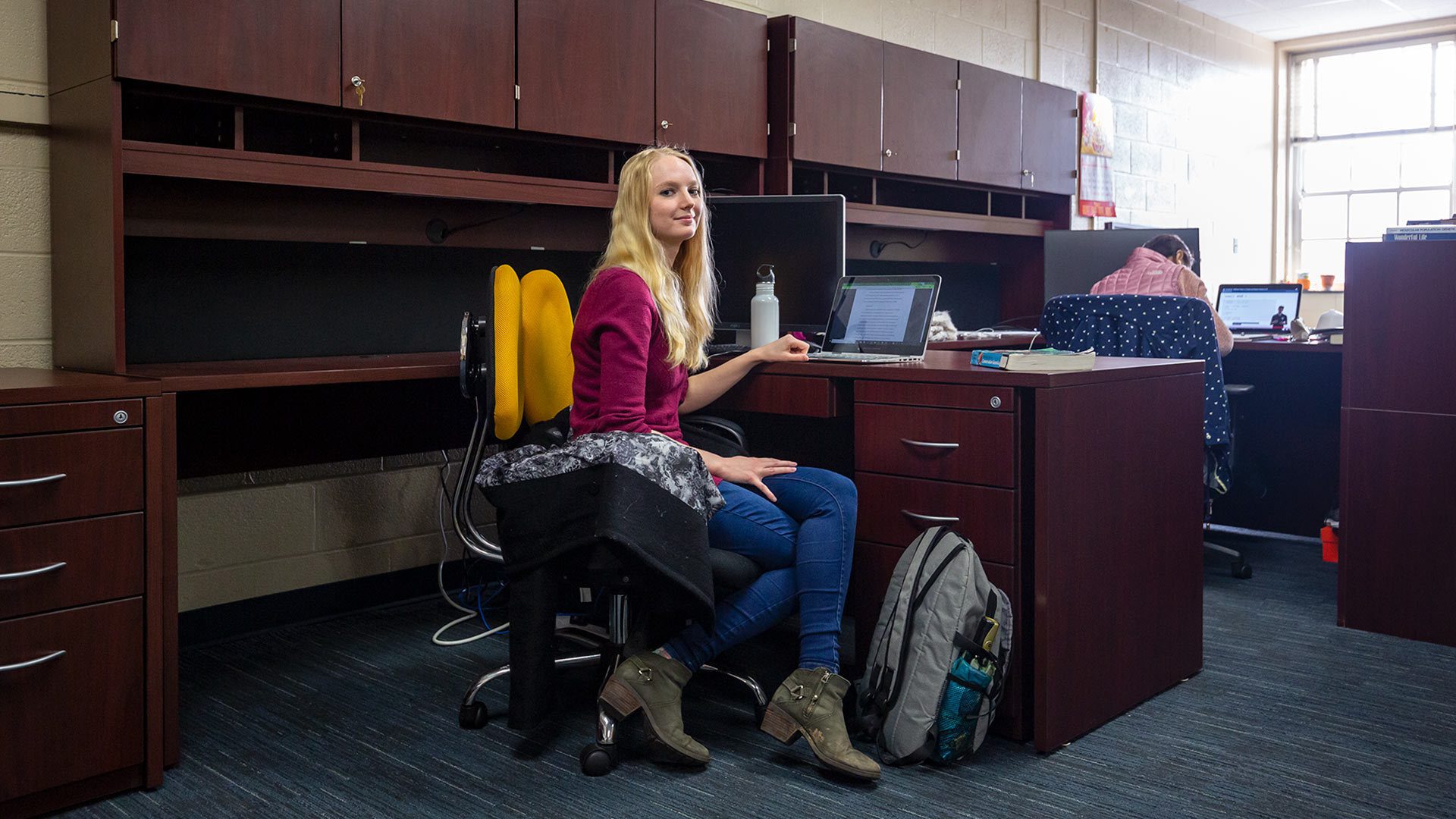- January 24, 2019
- By Maryland Today Staff
The first time Shauna Rasband encountered a federal government shutdown back in 2013, the online U.S. Geological Survey data she needed for an undergraduate project had seemingly evaporated.
The current partial shutdown of the federal government—now in its record 34th day—has cost the UMD doctoral student in biology much more: She’s cut off from her Ph.D. adviser at the Smithsonian Institution, lost access to a federal lab with equipment she needs, and missed important training in a method of DNA sequencing central to her avian genomics research.
“If this ends tomorrow, I could find a way to put in all the work I had hoped to do in January over the course of the semester, along with everything else I’m doing,” she said yesterday. “If the shutdown goes on and on for months, it could be pretty bad.”
Rasband is among a growing list of Terps feeling the effects of the shutdown on campus. Some federal funds for research and projects are drying up or will do so soon—one stop-work order has already been issued in the Department of Astronomy—while faculty from numerous departments who work for federal agencies can’t teach or mentor students until the shutdown ends. Additionally, university officials are working to determine potential financial harm to students and what can be done to help.
The University of Maryland benefits from deep partnerships with a host of federal departments and agencies, says Laurie Locascio, vice president for research. “That means we’re unusually vulnerable in a shutdown,” she said.
Many such collaborations are with currently closed federal departments and agencies including NASA, the National Oceanic and Atmospheric Administration (NOAA), the Department of Agriculture, the National Institute for Standards and Technology (NIST) and the National Science Foundation.
At UMD, work has been drastically affected at, among others, the Joint Quantum Institute, a partnership with NIST; the Center for Research and Exploration in Space Sciences and Technology II, which supports NASA’s Goddard Space Flight Center; and the Earth System Science Interdisciplinary Center, where researchers support work at NOAA and NASA.
In total, hundreds who work or study at UMD are either furloughed or unable to do their work because their agency partners have been sent home. The result is that UMD’s crucial research mission has been drastically slowed at a time when—in quantum science for instance—the United States can’t afford to lose ground to competitors such as China, Locascio said.
“Anyone who thinks thinks this shutdown isn't a big deal for research is looking at the old model of doing things,” she said. “The reality is that the pace of change has sped up.”
The shutdown is also expected to hit some students in the pocketbook, whether because they’re paid directly by federal institutions or because their parents are furloughed. The university is working to identify such students and make sure shutdown difficulties don’t derail their educations.
Last week, Provost Mary Ann Rankin instructed academic units to hold off on personnel actions and to protect graduate assistants, research assistants and faculty supported by federal grants and contracts.
“It is my expectation that all administrative units, including departments, colleges and the Offices of the Provost and the VPR, will work together to provide short-term funding where possible, to protect our faculty, staff and students,” she wrote.
In an email sent earlier this week to graduate students, Steve Fetter, associate provost and dean of the Graduate School, said students affected by the shutdown could make arrangements to minimize its impact. The Graduate School has worked with the Office of Student Financial Aid to secure funding for emergency loans, and with Student Financial Services and Cashiering to ensure that any late fees on tuition payments are waived.
“We are committed to assist students who are dependent on federal agencies for tuition payments and stipends, and to provide emergency funding on a case-by-case basis,” he said.
Rasband, who plans to do the bulk of her doctoral research at the Smithsonian’s National Museum of Natural History, hopes politicians in D.C. can soon find a way to reopen the government so she can get back to her adviser, and the lab equipment she can't do without.
“It’s a really wonderful place,” she said. “When it’s running.”
This story has been updated to correctly identify the department that received a stop-work order. It was the Department of Astronomy, not the Department of Physics.
Topics
Campus & CommunityUnits
Office of the Provost